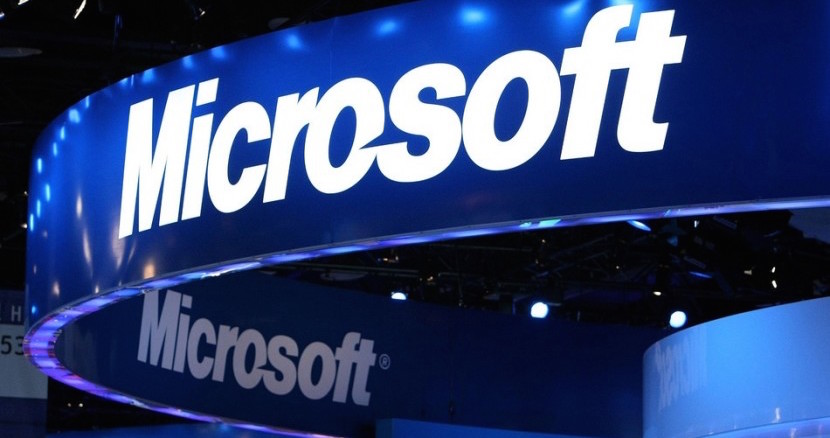In his groundbreaking book on the rise of Exponential Organisations, Salim Ismail revisits what he describes as the Iridium Moment when investors poured billions into the next big thing, Motorola’s satellite phone network. Technology advances made Iridium a white elephant even before it started operating. Given the rapid advances in renewable energy, South Africa’s proposed $100bn nuclear fleet is likely to have a similar result. Global software leader Microsoft’s Iridium Moment was exposed last night when the group took a $7.5bn writeoff on the money it invested in buying Nokia’s phone unit. Showing even the supposedly smartest are made to look like fools when they ignore the way the world is changing. – Alec Hogg
(Bloomberg) – Microsoft Corp. reported its largest-ever quarterly net loss, hurt by a $7.5 billion writedown after the purchase of Nokia’s handset unit failed to rescue the software maker’s mobile business.
The net loss in the fourth quarter, which ended June 30, amounted to $3.2 billion, and sales fell 5.1 percent to $22.2 billion, Microsoft said Tuesday in a statement. Excluding the Nokia charge and costs related to job cuts, profit was 62 cents a share. Analysts on average projected profit of 58 cents on sales of $22 billion, according to data compiled by Bloomberg.
While revenue from Microsoft’s cloud-computing business rose on growth in the Azure and Office 365 programs, the gains were overshadowed by the writedown, an acknowledgment that the Nokia deal had lost almost all its value after a little more than a year. Chief Executive Officer Satya Nadella announced 7,800 job cuts and said he plans to narrow the focus of the mobile business to try to win customers in specific markets.
“Phones continue to struggle and it was pretty much in line in the cloud initiatives,” said Dan Morgan, a senior portfolio manager at Synovus Securities Inc., which owns Microsoft shares. “They’re still progressing but people would like them to move faster.”
The strength of the U.S. dollar hurt revenue and earnings in the recent quarter, Microsoft said. Excluding the effect of currency fluctuations, revenue would have declined 2 percent.
Restructuring Charges
Microsoft shares fell 3.9 percent in extended trading following the report after closing at $47.28. The shares rose 8.6 percent in the quarter, while the Standard & Poor’s 500 Index fell less than 1 percent.
Earnings were reduced by a total of $8.4 billion in charges, including the writedown of its Nokia purchase and restructuring charges related to job cuts and other integration efforts. Including those costs, the net loss in the fourth quarter was 40 cents a share, the Redmond, Washington-based company said.
Microsoft acquired Nokia’s phone unit in April 2014 for $9.5 billion, including $1.5 billion in acquired cash. The addition of the unit — a deal struck under CEO Steve Ballmer, Nadella’s predecessor — was a flop, and Microsoft’s smartphone business continued to lose money while gaining little ground with mobile users.
Currency Impacts
Microsoft expects currency-exchange rates to continue to affect revenue in the fiscal year that started July 1, Chief Financial Officer Amy Hood said in an interview. Currency will impact the company’s commercial business even more in the first half of the year than it did in the fourth quarter, she said. Changes to narrow the focus of the phone-hardware business by releasing far fewer models and exiting some countries will “significantly” lower sales but should also reduce costs in the money-losing business, she said.
“You will see improving results on the bottom line,” she said of the mobile business. As a result, the company cut operating expense forecasts for the year to $32.1 billion to $32.4 billion.
Windows 10
Microsoft is releasing a new version of its flagship operating system, called Windows 10, on July 29. Sales of Windows have suffered as the personal-computer market heads toward its fourth straight year of shrinking unit sales, and Microsoft has seen lackluster demand for phones and tablets that run on the platform. Worldwide PC shipments fell 9.5 percent in the June quarter, Gartner said.
Nadella said he expects Windows 10 to restore growth to the Windows business, though the biggest impact will start two quarters from now.
“My bullishness for Windows 10 is more in the second half of the fiscal year,” he said on the call.
Under Nadella, Microsoft has refocused on cloud products and productivity applications. The company released new Azure data-center services and Office 365 programs, and brought out versions of its mobile applications for Apple Inc. and Google Inc. operating systems.
In the fourth quarter, commercial cloud revenue climbed 88 percent, Microsoft said. Sales in the unit that includes those cloud programs rose 36 percent to $3.08 billion, compared with a $3.09 billion average estimate of analysts. The commercial cloud business now has an annualized revenue run rate of more than $8 billion, the company said. Azure revenue and usage rose at a percentage in the “triple digits,” said Hood, though she declined to specify a number.
Corporate Customers
Revenue in the Commercial Licensing division, which includes copies of Windows and Office sold to corporate customers, fell 7 percent to $10.5 billion. That matched analysts’ average projection. Besides currency, part of the decline came from companies switching from traditional products to Office in the cloud.
Sales of Windows to PC makers to pre-install on machines dropped 22 percent, the company said. In the year-earlier quarter, customers were buying PCs ahead of the expiration of support for Windows XP, the company said.
Device and Consumer Licensing sales, which include consumer versions of Windows, declined 34 percent to $3.23 billion. Analysts had expected $3.25 billion.
Unearned revenue, a measure of future sales, was $25.3 billion, compared with the $26 billion average estimate of six analysts surveyed by Bloomberg.



